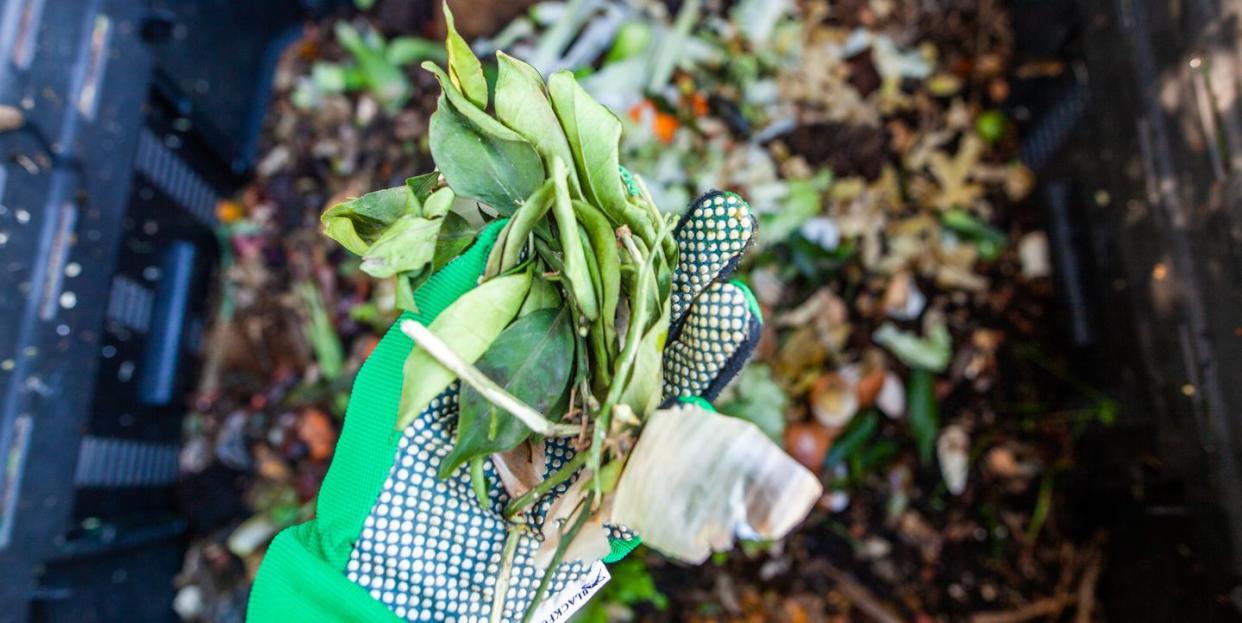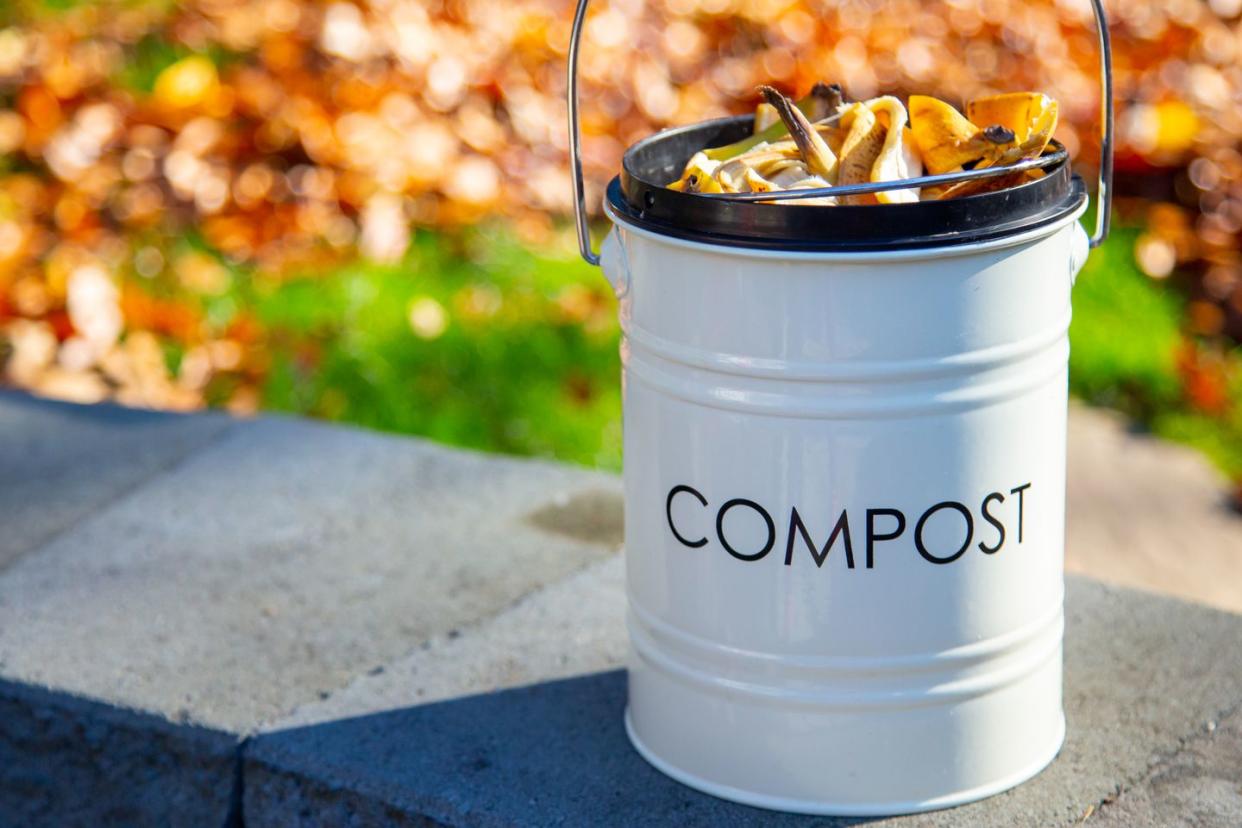Gardeners: Here's Everything You Need to Know about Using Organic Fertilizer

Whether you're growing vegetables in a raised bed or designing flower gardens around the front lawn, chances are you've considered adding fertilizer, to give your plants the best chance to grow. And you may have wondered whether or not you need organic fertilizer — whether it's any better for your garden, or for yourself, if you're growing veggies. To help sort the valuable info from the not-so-valuable, we spoke to some experts, who were able to break it down.
What does organic even mean? “The term ‘organic’ can be ambiguous and is overused in marketing,” says Glen Harris, PhD, professor and extension agronomist at the Department of Crop and Soil Sciences at the University of Georgia. But that doesn't mean that the word is meaningless.
“Organic means it’s derived from animal or plant-based sources, such as manure or compost,” says Harris. Organic fertilizers may also include alfalfa meal, bone meal, fish emulsion, and poultry manure. This is distinguished from chemical fertilizers (also called commercial or synthetic fertilizers) which only contain a few chemicals, such as nitrogen, phosphorus, and/or potassium, among others.
Here's what else you need to know about the science of organic fertilizers:
Do you even need fertilizer? Take a soil test first.
Regardless of the type of fertilizer you choose, before spreading anything, it pays to do your homework. Adding a fertilizer that contains something your soil already has too much of is a waste and failing to add something your soil needs can cause havoc with plants.
“Things can get out of balance quickly in a garden,” says Harris. “If you’ve never had your soil tested, you don’t know what you need or don’t need.” Your plants won’t thrive if they have a nutrient deficiency, and it's wasteful to apply too much.
Your university coop extension service (find yours here) can perform soil testing, interpret results, and recommend fixes. These tests also evaluate the soil pH level, a measure of alkalinity or acidity, to determine if it needs to be adjusted to make soil nutrients more readily available to plants. (Different plants can require different pH levels.)
What’s the difference between organic and conventional fertilizers?
The primary nutrients plants need are nitrogen (N), phosphorous (P), and potassium (K)— that’s the N-P-K you see on most fertilizer bags (Here's how to understand fertilizer numbers and letters). Plants can absorb these nutrients only in certain forms, and organic fertilizers must be broken down by soil microbes first, a process called mineralization, which converts nutrients into forms plants can use, says Harris.
Conventional fertilizers contain nutrients in a form plants can absorb immediately.
In addition, organic fertilizers typically contain nutrients in low concentrations. “One of the challenges with organic fertilizers is that the nitrogen is often around 3 or 4 percent,” says Clint Waltz, PhD, a turfgrass specialist at the University of Georgia’s Turfgrass Research and Education Center. “It takes a lot more of these products to get the results you want, especially on lawns. When you calculate cost, synthetics are less expensive and you don’t have to apply as much.”
The mineralization process also takes time and relies on environmental conditions such as temperature and moisture levels to move it along.
“Organic fertilizers can be effective, but it’s a slower process. There’s no soil microbe activity until soil temperatures are warmer than 55 degrees. So, for example, your lawn won't get green as quickly in the spring,” says Waltz.
Another consideration is that some organic products contain more phosphorus than a lawn can use. Over time, this may contribute to excess phosphorous levels, which may lead to potential runoff risk to surface and groundwater.
Is organic fertilizer better for plants?
Yes and no. Plants don’t care where their nutrients come from, says Harris. But organic fertilizers can improve the structure of soil over time by increasing aeration and water-holding capacity of the soil.

The makeup of nutrients in some organic fertilizers, such as compost, can also vary considerably from one batch to the next. That’s especially true if you’re using compost you’ve made yourself, says Harris.
What is the best organic fertilizer?
Interestingly, while food has to meet certain criteria before it can be labeled organic, the term is not regulated for fertilizers, so essentially anyone can put it on the label, says Harris.
If you prefer an organic fertilizer, look for those that have been examined by the Organic Materials Review Institute (OMRI), an independent non-profit organization which reviews products to see if they comply with organic farming standards. A company whose product passes the review can display the OMRI seal on packaging.
Is organic fertilizer safe around pets?
Because it’s derived from plant and animal sources, organic fertilizer can be much more smelly. This odor fades in a few days, but it can attract wildlife or pets, who may ingest it, says Waltz. In fact, organic fertilizers regularly make the ASPCA’s list of top 10 pet toxins because they can cause GI upset, vomiting, and seizures.
Keep your fur babies safe by fencing your garden, not leaving products where pets have access, and keeping pets out of an area where you’re using fertilizer or any other garden product. And call your vet ASAP if you suspect your pet has ingested any. It’s always better to be safe than sorry.
You Might Also Like
